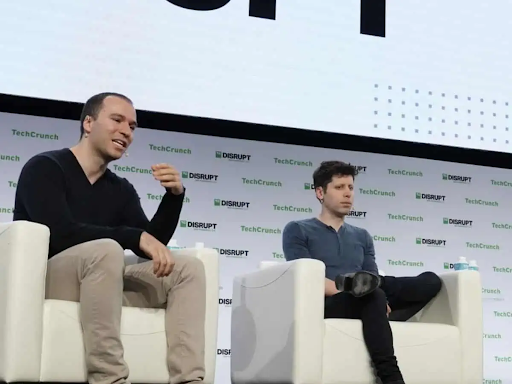Key Points:
- According to the lawsuit, OpenAI has strayed from its initial intentions of being an open-source and not-for-profit company, which was originally agreed upon with Elon Musk.
- Musk wants OpenAI to release its technology to the public, and to keep its latest technology out of the hands of for-profit Microsoft.
Tesla CEO Elon Musk filed a lawsuit against OpenAI, OpenAI’s CEO Sam Altman, and OpenAI’s president Greg Brockman this past leap day. In 2015, Musk, Altman, and Brockman founded OpenAI but Musk stepped away in 2018. Now, Musk is suing because things haven’t gone as originally planned.
In Musk’s eyes, Altman and Brockman failed to sustain OpenAI’s original mission. According to his lawsuit, it was Altman’s idea to join Musk and form an artificial intelligence (AI) lab to compete with Google’s DeepMind, the most advanced iteration of AI at the time. In turn, along with Brockman, Musk, and Altman agreed the lab would:
- Be a non-profit that serves the benefit of humanity and not a for-profit seeking to maximize financial gain.
- Be an open-source company and not keep its technology secret for commercial reasons.

The lawsuit also says Musk named the lab OpenAI to reflect its open-source nature, meaning its source code — the text-based commands used for its construction — would be open to the public. To Musk, OpenAI could put advanced AI in the hands of the many, taking it from the few hands within Google’s walls. In this way, OpenAI could prevent the tech monolith from having an unfair technological advantage over the rest of the world.
Additionally, in the case filed, it is argued that Musk was
“A moving force behind the creation of OpenAI, Inc. contributing a majority of its funding in its first several years, advising on research directions, and most importantly, recruiting some of the world’s leading scientists and engineers to work at the non-profit venture, including Chief Scientist Ilya Sutskever.”
Essentially, Musk wants compensation for these early contributions to OpenAI. He also wants OpenAI’s technology to be made available to the public and wishes to prohibit financial gains derived from OpenAI’s technology.
Furthermore, seemingly to keep ChatGPT-4 and its successors from being licensed under Microsoft, Musk’s lawsuit asks that the GPT-4 language model and its next-generation successors be considered an artificial general intelligence (AGI) — a hypothetical form of AI that meets or surpasses human intelligence. To support the AGI designation, the case file says Microsoft’s own researchers have publicly stated the following:
“[G]iven the breadth and depth of GPT-4’s capabilities, we believe that it could reasonably be viewed as an early (yet still incomplete) version of an AGI system.”
Are Musk’s Allegations Sound?
While Musk may be right about Altman and Brockman straying from OpenAI’s original mission, there is no contract signed by the concerned parties relating to this. It follows that Musk may have little stake in OpenAI’s decision to become a for-profit corporation or to keep its technology secret. It may also be difficult for Musk to prove how his early contributions to OpenAI contributed to its current technology and success.
Moreover, Altman and Brockman may argue that, while OpenAI has become a for-profit company, they still maintain to serve the benefit of humanity. Additionally, even with the lawsuit stating that the secrecy surrounding ChatGPT-4’s technology “is primarily driven by commercial considerations, not safety,” Altman and Brockman may say the secrecy is driven by safety. That is, to keep the technology out of the hands of nefarious actors.
Perhaps the most difficult thing to prove will be that GPT-4 is an AGI. Many believe that AGI is inevitable and that OpenAI will be the first to unlock it, but such a scenario remains hypothetical. It may be hard to make the case for an existing technology or new technology developing into something that does not yet, or may never, exist.